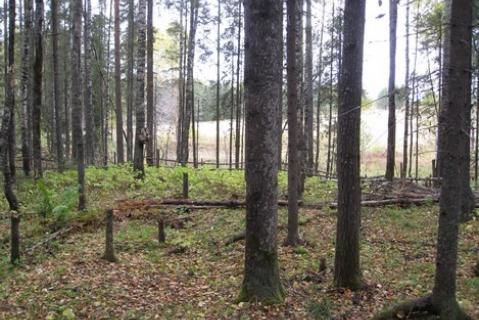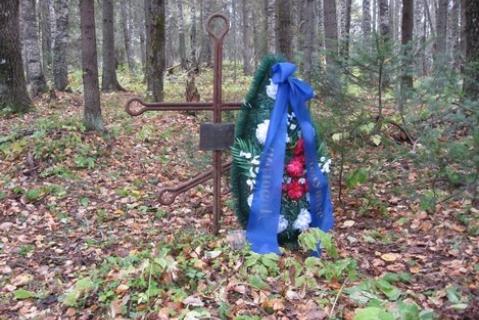The Rabog special settlement (also known as Raboch and 8th kilometre) was set up on 12 June 1931 by dekulakized peasant families, expelled from the Vologda and Arkhangelsk Regions (1,931 people). In June 1940 a group of Polish Jews (“refugees”) were brought there. The men, women and children who died there were buried in the woods one km from the village. Rabog was officially closed in 1956.
In 2009, local historians from Koigorodok erected a commemorative cross over the burials. It bears a plaque reading, “To the victims of political repression”. That same year, the graveyard was visited by Israeli citizen, Avraam Grant, whose grandparents and aunt were buried there, and a commemorative rite was performed for the victims of Soviet repression and of the Holocaust.
The Memorial online database (2025) lists 129,473 victims in the Komi Republic. (See Nizhny Chov.)
It names 525 victims who were deported to Rabog: 227 in 1930-1 were from the Kuibyshev (Samara), Stalingrad (Penza), Volga German and Lower Volga Regions; 248 in 1940, many from occupied Polish territory, 91 identified as Jewish.
| State of burials | Area | Boundaries |
|---|---|---|
|
Grave mounds and subsidence; one grave cross has survived, bearing the words: "Fyodor Karpovich Tonevitsky, September 1933"
|
not determined
|
not delineated
|
I. Rabiner, “Avraam Grant’s commemorative prayer », Hai-vai, 25 September 2009
I. Ponosov, “Chelsea football club’s former trainer, Avraam Grant, has found the graves of his forbears in the Komi Republic”, Rossiiskaya gazeta, 21 July 2009
Special settlements in the Komi region, … in the June 1933 comprehensive study: documents, Syktyvkar, 1997 (Compilers G.F. Dobronozhenko and L.S. Shabalova)


